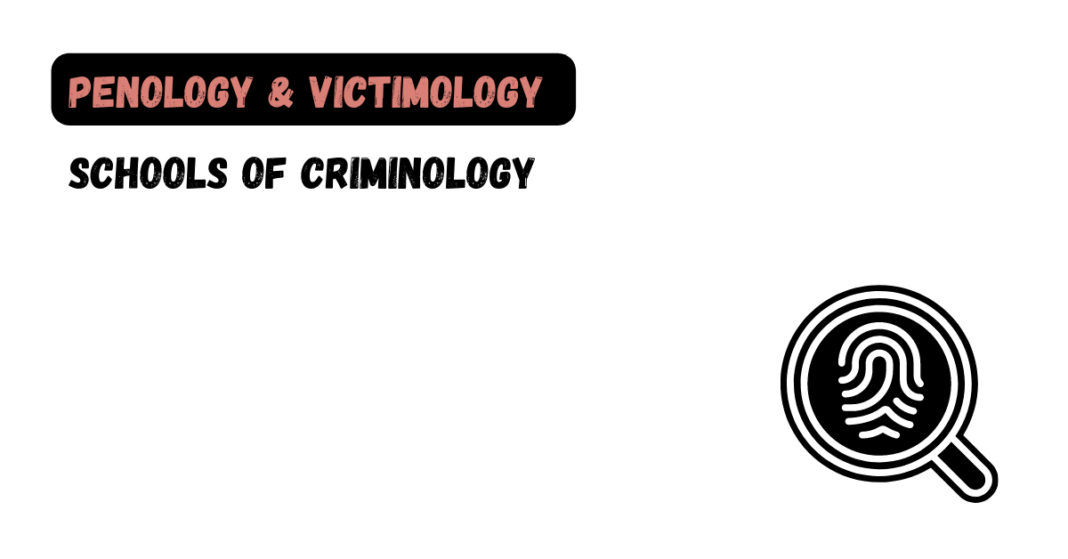Pre-Classical School
The Pre-Classical School is the earliest stage in the development of criminology and dates back to ancient civilizations. It is characterized by the belief in supernatural explanations for crime and punishment. During this period, societies attributed criminal behavior to supernatural forces or divine retribution. Punishments were often harsh and based on religious or superstitious beliefs rather than a rational understanding of crime.
Classical School
The Classical School of criminology emerged during the Enlightenment in the 18th century. It is associated with thinkers like Cesare Beccaria and Jeremy Bentham. The Classical School emphasized the concept of free will and rational choice in committing crimes. According to this school, individuals weigh the potential benefits and consequences of their actions before deciding to engage in criminal behavior. Punishments should be swift, certain, and proportionate to deter crime effectively.
Neoclassical School
The Neoclassical School builds upon the ideas of the Classical School but introduces some modifications. It recognizes that not all individuals have the same capacity for rational decision-making. Some individuals, such as those with mental health issues or intellectual disabilities, may not fully understand the consequences of their actions. Therefore, the Neoclassical School introduced the concept of mitigating factors, allowing for some discretion in sentencing based on individual circumstances.
Positivist School
The Positivist School of criminology emerged in the 19th century as a response to the limitations of the Classical School. Positivists, such as Cesare Lombroso, believed that criminal behavior was determined by biological, psychological, and sociological factors. They argued that certain individuals were “born criminals” due to physical traits or inherent characteristics. This school shifted the focus from free will to the study of scientific causes of crime.
Social Logical School
The Social Logical School, also known as the Chicago School, emerged in the early 20th century. It focused on the social and environmental factors influencing crime. Researchers like Robert Park and Ernest Burgess studied the social disorganization of urban areas and its correlation with high crime rates. This school emphasized the importance of studying neighborhoods and communities in understanding criminal behavior.
Multifactor School
The Multifactor School, also known as the Eclectic School, recognizes that crime is a complex phenomenon influenced by multiple factors. It integrates insights from various schools of criminology, including biological, psychological, sociological, and economic perspectives. This school acknowledges that no single theory can fully explain all types of crime and seeks to understand crime by considering multiple contributing factors.
Criminology’s Schools: A Memorable Exploration
- Pre-Classical School: In ancient times, people believed in supernatural forces causing crime and punishment. Punishments were harsh and based on religious or superstitious beliefs.
- Classical School: During the Enlightenment, thinkers like Beccaria and Bentham introduced the idea of free will and rational choice. Criminals weigh consequences before committing a crime. Swift and certain punishments deter crime.
- Neoclassical School: Building on the Classical School, Neoclassical thinkers considered individual circumstances. Mitigating factors, like mental health, are taken into account during sentencing.
- Positivist School: In the 19th century, Positivists like Lombroso focused on scientific causes of crime. They believed some people were “born criminals” due to biological and psychological factors.
- Social Logical School: Also known as the Chicago School, it emerged in the 20th century. Researchers studied how social factors in neighborhoods influenced crime rates.
- Multifactor School: Crime is complex, influenced by multiple factors. The Multifactor School integrates biological, psychological, sociological, and economic perspectives to understand crime comprehensively.
Remember
- Pre-Classical: Supernatural punishments.
- Classical: Free will, rational choice, swift punishment.
- Neoclassical: Individual circumstances matter.
- Positivist: Scientific causes, “born criminals.”
- Social Logical: Neighborhood influence.
- Multifactor: Crime is complex, multiple factors involved.





